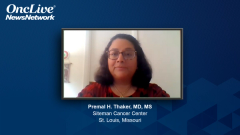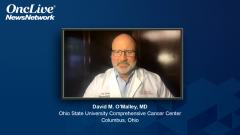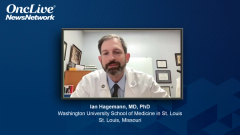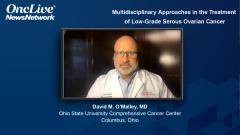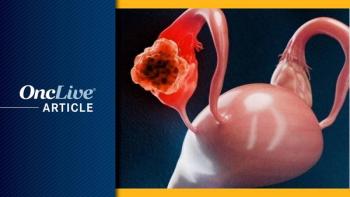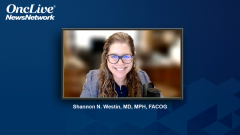
Patient-Centered Approaches to Frontline Low-Grade Ovarian Cancer: Optimizing Treatment, Quality of Life, and Fertility Preservation
Expert perspectives from Shannon Westin, MD, MPH, FACOG, on frontline treatment options for patients with newly diagnosed low-grade serous ovarian cancer in the context of recent clinical trial data. Dr. Westin discusses optimizing treatment strategies while prioritizing quality of life and fertility preservation for patients.
Episodes in this series

Summary:
In the management of newly diagnosed low-grade serous ovarian cancer, treatment decisions are influenced by the disease stage. While early-stage (Stage 1) LGSC may not necessitate immediate treatment post-surgery, patients often present at more advanced stages (Stage 3 or 4), prompting consideration of various options. The historical standard of care for epithelial ovarian cancer, including LGSC, has been chemotherapy. However, emerging insights highlight the distinct nature of LGSC compared to high-grade ovarian cancer, suggesting potential benefits from hormonal therapies.
The holistic management of patients with LGSC involves integrating several strategies. Notably, the age of patients plays a significant role, as many are pre-menopausal and may desire fertility preservation. Counseling becomes crucial, addressing potential side effects like hot flashes, mood swings, and even rare occurrences such as hand cramps and trigger finger associated with aromatase inhibitors. Awareness of these effects is vital, even in menopausal patients who have undergone oophorectomy, emphasizing the need for comprehensive patient education and support.
The speaker emphasizes the departure from the traditional approach of treating all epithelial ovarian cancers uniformly. Instead, recognizing the unique molecular characteristics of LGSC becomes pivotal in tailoring treatments. Non-chemotherapeutic options are considered more favorable for LGSC, not only demonstrating enhanced efficacy but also improved tolerability compared to conventional chemotherapy. This shift reflects a paradigm change in understanding and addressing the specific needs of patients with LGSC.
In conclusion, the nuanced approach to LGSC treatment involves a stage-specific evaluation and a departure from the one-size-fits-all chemotherapy model. Hormonal therapies, comprehensive patient counseling, and a molecularly guided treatment approach characterize the evolving landscape of LGSC management, offering improved efficacy and tolerability in contrast to historical practices.
Summary is AI-generated and reviewed by OncLive editorial staff.


